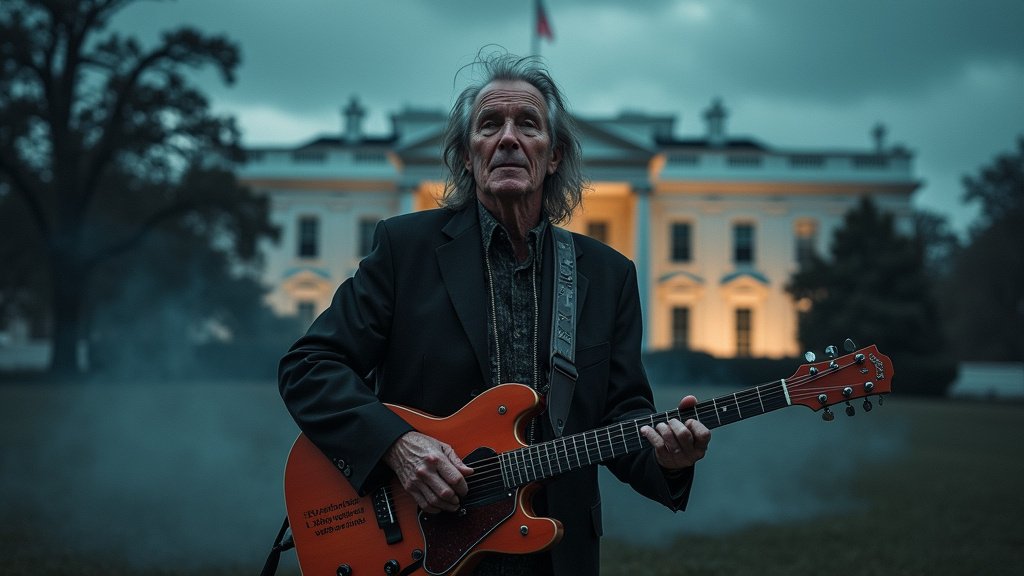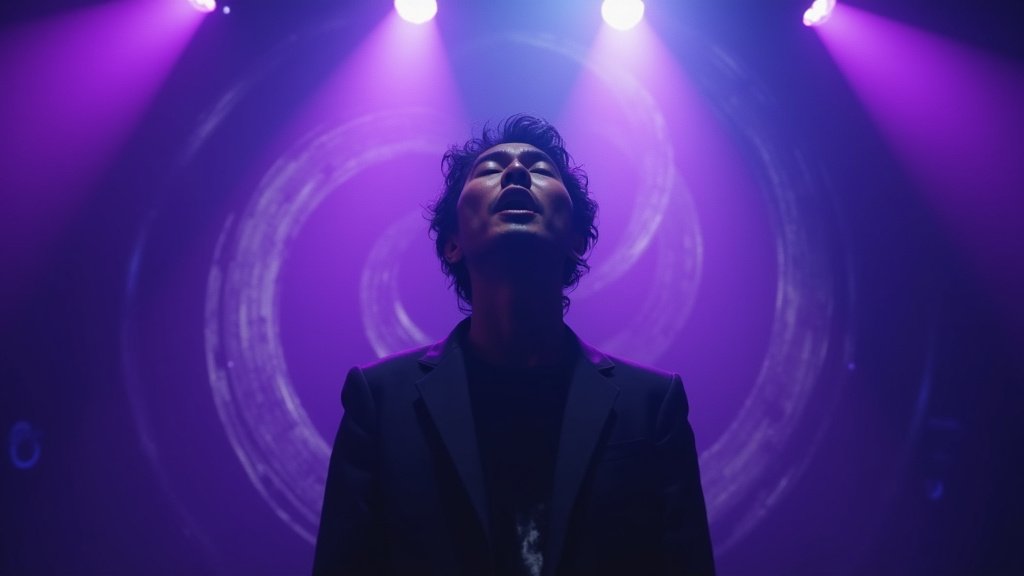Veteran Canadian-American music icon Neil Young has reignited his long-standing tradition of politically charged songwriting with the release of his new protest anthem, “Big Crime.” The song, officially released on September 3, 2025, after its debut in late August, is a scathing critique of President Donald Trump’s actions and rhetoric, particularly focusing on the administration’s handling of Washington D.C. and accusations of authoritarianism.
A Stark Warning Against ‘Fascist Rules’
“Big Crime” arrived as a raw and direct indictment, first performed live by Young and his band, The Chrome Hearts, during a soundcheck before a Chicago concert on August 27, 2025. The track officially dropped on Young’s website and streaming services shortly thereafter. Lyrically, the song pulls no punches, directly challenging Trump’s policies and perceived authoritarian tendencies. The chorus boldly declares, “There’s big crime in D.C. at the White House,” a pointed inversion of Trump’s own narrative about a “crime emergency” in the capital. This central theme is bolstered by other stark lines: “Don’t need no fascist rules / Don’t want no fascist schools / Don’t want soldiers walking on our streets.” Young also calls for direct action, urging, “Got to get the fascists out / Got to clean the White House out!”
Context: D.C. Deployment and ‘Billionaire Fascists’
The song’s release is deeply intertwined with recent political events. It directly addresses the Trump administration’s decision to deploy thousands of National Guard troops and federal law enforcement into Washington D.C., purportedly to combat crime. However, reports at the time indicated that crime rates in the city were at historic lows, suggesting to critics like Young that the deployment was an overreach of federal power and a move toward authoritarian control. Young extends his critique to the financial underpinnings of power, with lyrics stating, “No more money to the fascists, the billionaire fascists.” He also reinterprets Trump’s signature “Make America Great Again” slogan, repeatedly singing “No more great again,” underscoring his rejection of the administration’s vision for the country.
A Legacy of Lyrical Defiance
Neil Young, a MAJOR AMERICAN MUSIC ARTIST with a career spanning over five decades, has consistently used his platform to address political and social issues. His history of protest music is extensive, featuring iconic tracks like “Ohio,” a powerful response to the 1970 Kent State shootings, and “Rockin’ in the Free World,” which has been critical of multiple U.S. administrations. Young has previously sued Trump for unauthorized use of his music at campaign rallies and has publicly expressed concern that his outspoken criticism might lead to him being barred from re-entering the United States, a country for which he became a dual citizen in early 2020.
Reception and Continued Activism
The release of “Big Crime” has been met with considerable attention. Music news outlets have described it as a “blistering return to form” and a “sonic middle finger” to the current political climate. While the White House reportedly dismissed the song as “cringe,” its existence and impact underscore Young’s enduring commitment to using his art as a form of political commentary and resistance. The song continues to be a staple on his ongoing “Love Earth Tour,” where it is reportedly met with enthusiastic audience responses, signaling that the voice of this iconic ARTIST remains as potent and relevant as ever in contemporary news cycles.
In an era often marked by apathy, Neil Young’s “Big Crime” serves as a potent reminder of music’s capacity to challenge power, provoke thought, and articulate the frustrations and hopes of many, solidifying his legacy as a fearless voice in popular MUSIC.





